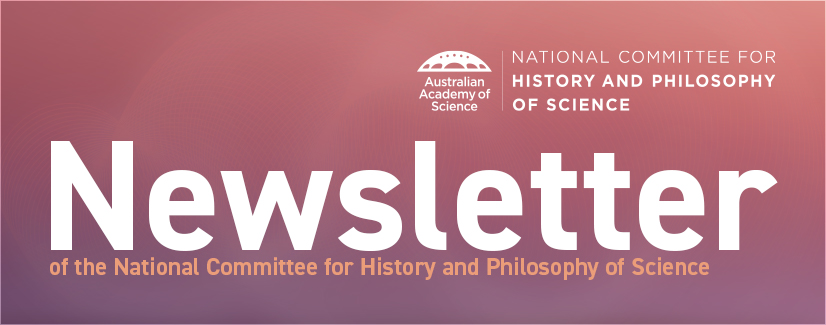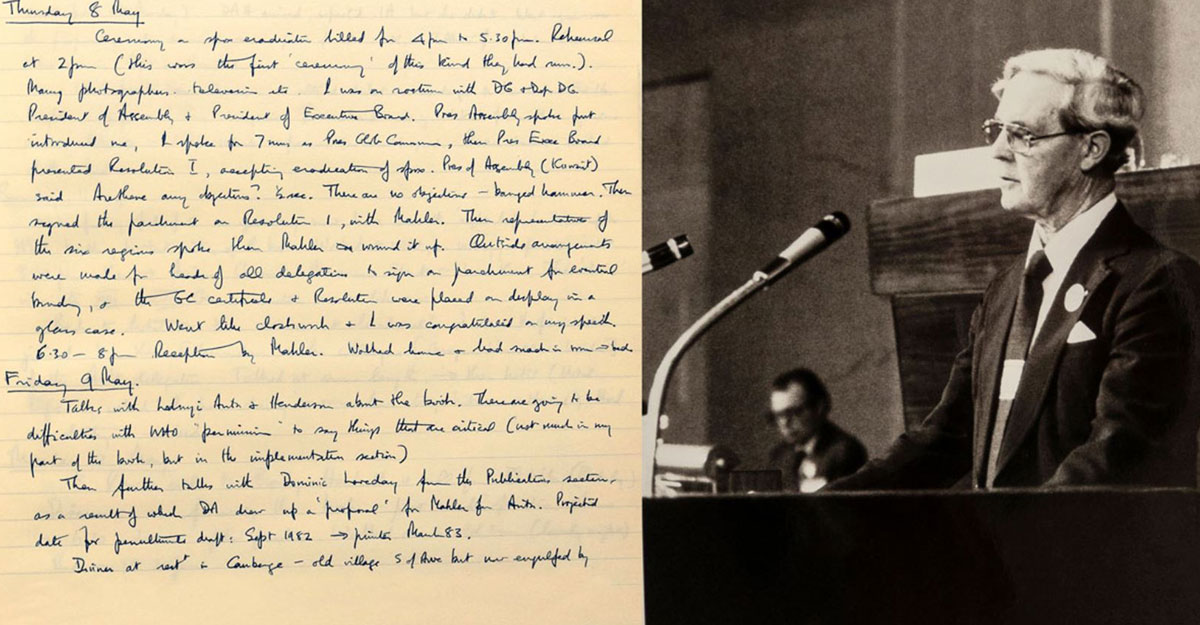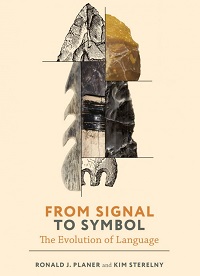
The Newsletter of the National Committee for History and Philosophy of Science (NCHPS) highlights news, opportunities and events relevant to the diverse fields of interest that occupy the discipline of history and philosophy of science.

Dr Rachael Brown
Director, Centre for Philosophy of the Sciences, Australian National University
Deputy-Chair, National Committee for History and Philosophy of Science
Welcome to the second issue of the NCHPS newsletter.
Continuing with our big questions initiative, in this issue we look at the question of interdisciplinary engagement with a particular focus on the recent emergence of ‘meta-science’ as a global movement within science.
Whilst engaged with many of the questions which have traditionally fallen within the HPS banner, there has been relatively limited cross-pollination between HPS and meta-science.
This raises important questions not only about why there has been so little engagement between HPS and meta-science, but also how such engagement can be fostered.
More broadly, we as a committee seek your input into how we might help to build an inclusive community for all scholars interested in issues relating to the nature of science and the scientific method in Australia regardless of disciplinary background.

Dr Rachael Brown
The past decade has seen the rise of a potent and active global movement in science. Under the banner of ‘meta-science’, scientists have undertaken analyses of the scientific method and spearheaded the push for new standards in publication and research. One of the great innovations within meta-science has been the application of the array of tools for large-scale quantitative analyses of data developed within science to science itself. It is an extremely fertile and exciting area of research which has had a real impact on scientific practice.
As a philosopher of science, however, one of the striking features of this research has been its relative independence from the HPS/STS tradition. With some notable exceptions, such as Fiona Fidler’s work at the University of Melbourne and in psychology more broadly, meta-science and HPS/STS research have proceeded largely at arms-length, and indeed at times in acrimony*. I think everyone would agree that this has been a mistake, and that both groups of researchers have much to offer each other regardless of any disciplinary boundary settings.
Meta-scientists have done a great deal of really innovative and important work using large scale statistical analysis techniques to understand better the sources of replication failures. Work by Head et al. 2015 at ANU assessing the extent of P-hacking in the scientific literature, for example, offers a valuable contribution to discussions of the bottom drawer problem within HPS/STS. In the converse, meta-scientists could learn a great deal from the hard-won lessons of HPS/STSers regarding things such as the role of values in science and the demarcation dispute. How to foster such collaboration is, however, the question. Are there special challenges here? Or is this simply part of the broader challenge of building bridges across the STEM/HASS divide that has always faced those in HPS/STS?
*For example, a 2019 meeting at Stanford entitled ‘Metascience: The emerging field of research on the scientific process’ was met with rancor by some HPS/STSers who felt that it ignored the important work done by the discipline (a cursory Twitter search provides many examples of this sort of sentiment).
Some interesting follow-up resources from Australian scholars:


The 2023 Moran Award for History of Science Research is now open for application. This award is aimed at postgraduate students and other researchers with expertise in the history of Australian science. Its purpose is to support access to archives that record the history of science in Australia, especially by younger researchers, and it can be used towards travel and accommodation costs.
Online
11–12 April
The Australian National Centre for the Public Awareness of Science and the Australian Academy of Science are hosting this workshop. Early- and mid-career researchers (EMCRs) and PhD students from a range of disciplines interested in creating a national vision to describe how science can contribute to public good are invited to attend. Register for this event
Deakin Downtown, Melbourne
4 May, 10 am – 12 pm
Associate Professor Nicole Nelson (Wisconsin-Madison, Social Studies of Science) and Dr Timothy Neale (Deakin, Science, Technology & Human Values) are hosting this workshop for PhD candidates and ECRs. Contact ssn-info@deakin.edu.au for more information on how to apply to attend.
Deakin Downtown, Melbourne
4 May, 3 pm – 5:30 pm
Hosted by Associate Professor Nicole Nelson (Wisconsin-Madison, Social Studies of Science). Contact ssn-info@deakin.edu.au for more information on how to apply to attend.
Online
4–7 July
The Philosophy of Science streams of the Australasian Association for Philosophy conference are being hosted by ANU. The call for abstracts will open soon.
Online and University of Melbourne
27–29 October
The DeathTech Team at the University of Melbourne, association with the Australian Death Studies Society and supported by the Greater Metropolitan Cemeteries Trust, is hosting the Redesigning Deathcare Conference in a hybrid format. This conference aims to bridge the divide between research and practice at the end of life and death, through dynamic conversations about the challenges facing deathcare and how to build a better system.


The Academy has begun digitising its archival collections to preserve the most fragile and significant material and make it freely available online. Highlights from this project include records of early Antarctic exploration and Professor Fenner’s own travel diaries which have been made available to all online. Fenner is widely recognised for his role in international public health as Chair of the WHO Global Commission for the Certification of Smallpox Eradication and his extensive research contribution to the understanding of viruses and literature of microbiology.
The Basser Library and Fenner Archives of the Australian Academy of Science hold a rich and varied collection of published and primary source materials documenting the history of science in Australia.
Established in 1960 with a donation by philanthropist Sir Adolph Basser, the library was officially opened by Prime Minister Robert Menzies in 1962 alongside the archive, or manuscripts, collection. Named for eminent microbiologist Professor Frank Fenner, the archives contain more than 200 individual sub-collections that have become a significant resource for detailed study of scientific development and its cultural influence. Many collections are personal papers donated by Academy Fellows and other prominent researchers, while others relate to scientific societies and the history of the Academy itself.
The digitised diaries are now freely accessible via Trove and the Academy online catalogue.
Work is also underway to reinvigorate the Conversations with Australian Scientists interview program. This project recognises the contribution to public life by Academy Fellows and goes beyond the soundbite to delve into some extraordinary achievements.


New release: From Signal to Symbol by Ronald J. Planer and Kim Sterelny (MIT Press)
Drawing on a broad empirical and theoretical foundation, philosophers of biology and cognitive science, Ron Planer and Kim Sterelny (ANU), put forward a novel theory of the evolution of language. In contrast to other theories which emphasise the importance of a key innovation (or ‘miracles’) in the evolution of language, Planer and Sterelny provide a compelling defence of the idea that language is the cumulative product of the interplay between numerous small innovations in cognition and culture within the hominin lineage. The approach in this book is unique for the depth of engagement with the archaeological record, as opposed to developmental biology or linguistics. This gives a richness and realism to Planer and Sterelny’s account that is both refreshing and persuasive. It also means that this book offers much food for thought for the philosopher of science interested in the methodology and epistemology of the historical sciences.
© 2025 Australian Academy of Science